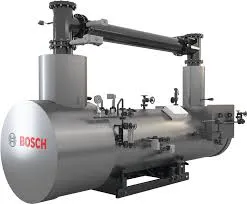Explore Your Options for Purchasing a Home with Reliable Hot Water Boiler Systems
Buying a Home with a Hot Water Boiler What You Need to Know
When purchasing a new home, there are numerous factors to consider beyond just location and size. One essential element that often goes unnoticed is the type of heating system installed within the property. For many homeowners, possessing a reliable hot water boiler can be a deciding factor in maintaining comfort and efficiency throughout the colder months. In this article, we will explore the various aspects of buying a home equipped with a hot water boiler, from the benefits of this heating system to important considerations during the purchasing process.
Understanding Hot Water Boilers
Hot water boilers, often referred to as hydronic heating systems, function by heating water and distributing it throughout the home via radiators or underfloor piping. This system is renowned for its efficiency, providing consistent warmth and a comfortable living environment. Unlike traditional forced-air heating systems that blow heated air, hot water boilers radiate heat evenly, minimizing cold spots and draft issues. Additionally, they usually operate quietly, enhancing the overall ambiance in the home.
Benefits of Hot Water Boilers
1. Energy Efficiency Hot water boilers can be more energy-efficient compared to other heating systems, primarily because water retains heat longer than air. This efficiency translates into potential savings on energy bills, making it an attractive option for prospective homeowners.
2. Comfort The gentle, even heat produced by a hot water boiler creates a cozy atmosphere that many people find appealing. It prevents sudden temperature fluctuations and can improve indoor air quality by minimizing dust and allergens often stirred up by forced-air systems.
3. Longevity and Durability With proper maintenance, hot water boilers can last for decades. This durability means homeowners might avoid the costs associated with frequent replacements seen with other types of heating systems.
4. Versatility Hot water boilers can be integrated with various systems, such as solar water heating or smart thermostats, allowing homeowners the flexibility to enhance their energy savings.
buy home hot water boiler

Considerations When Buying a Home with a Hot Water Boiler
1. Age and Condition Before purchasing a home, it’s critical to assess the age and condition of the hot water boiler. An older system may require repairs or even replacement, which can be a significant financial burden. Having a professional inspection can provide insight into the boiler's remaining lifespan and potential issues.
2. Maintenance History Request documentation regarding the maintenance history of the boiler. A well-maintained system will be more reliable and efficient, reducing the likelihood of breakdowns.
3. Fuel Source Hot water boilers can be powered by various fuels, including natural gas, propane, oil, or electricity. Understanding the fuel source can help you project future utility costs and whether it’s readily available in your area.
4. Efficiency Ratings Look for the energy efficiency ratings of the boiler, typically measured by the Annual Fuel Utilization Efficiency (AFUE) percentage. Higher ratings indicate better efficiency and lower operating costs.
5. Replacement Parts Availability Inquire about the availability of replacement parts for the specific boiler model. Some older models may have limited availability, which can be a concern if repairs are needed.
Conclusion
When considering buying a home, a hot water boiler can be an excellent choice for consistent heating and comfort. Understanding the system's benefits and key considerations will help you make informed decisions. Whether it's assessing the boiler's condition, understanding its fuel source, or evaluating efficiency ratings, being prepared can save both time and money in the long run. A well-functioning hot water boiler not only enhances your living experience but also contributes to the long-term value of your home. Happy house hunting!
-
Efficient Thermal Oil Boilers with AI Optimization | Superior PerformanceNewsAug.03,2025
-
High-Efficiency OEM Steam Boilers w/GPT-4-TurboNewsAug.02,2025
-
Advanced Electric Steam Boiler Manufacturers | GPT-4 Turbo AINewsAug.01,2025
-
Custom Steam Boilers Manufacturer | AI-Enhanced EfficiencyNewsJul.31,2025
-
Top Electric Steam Boiler Makers | AI-OptimizedNewsJul.31,2025
-
Top Electric Steam Boiler Manufacturers - High Efficiency SolutionsNewsJul.30,2025

